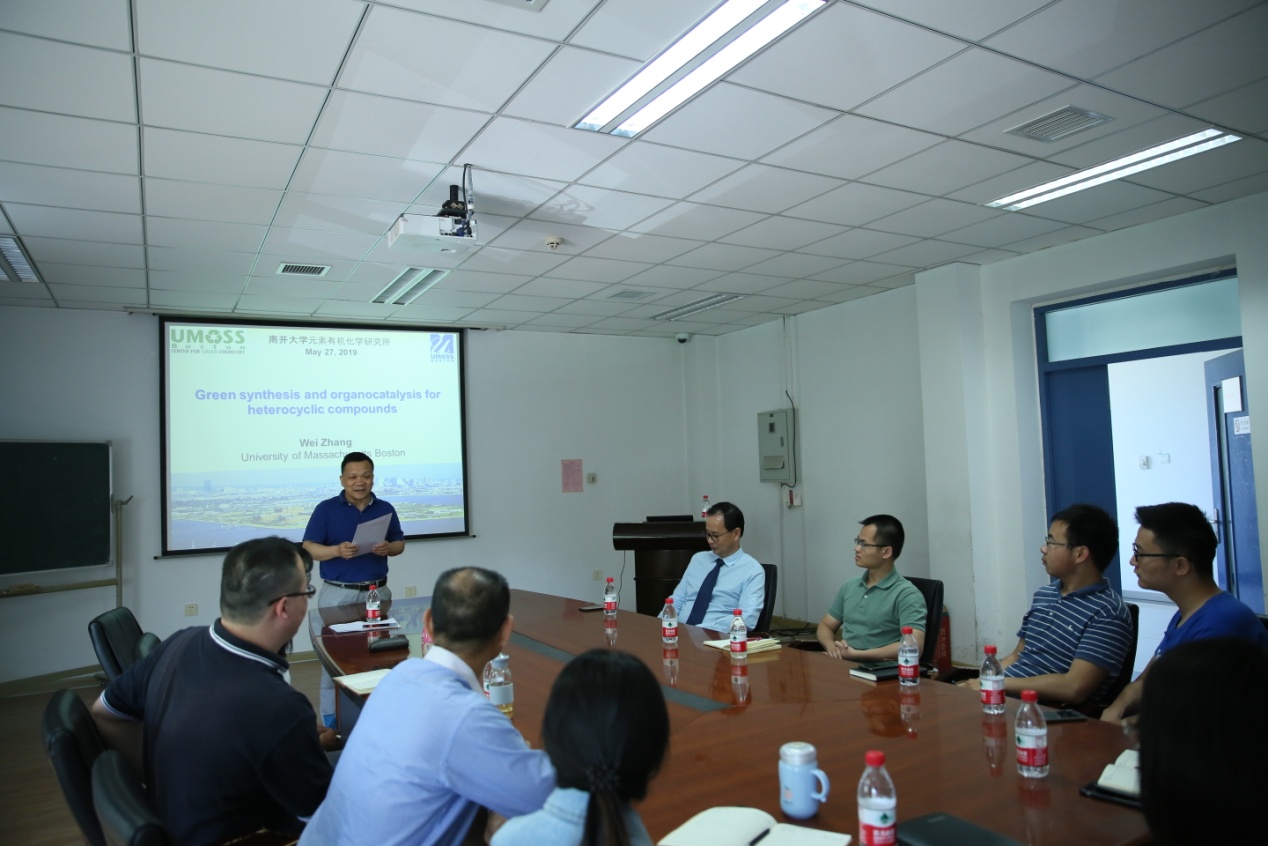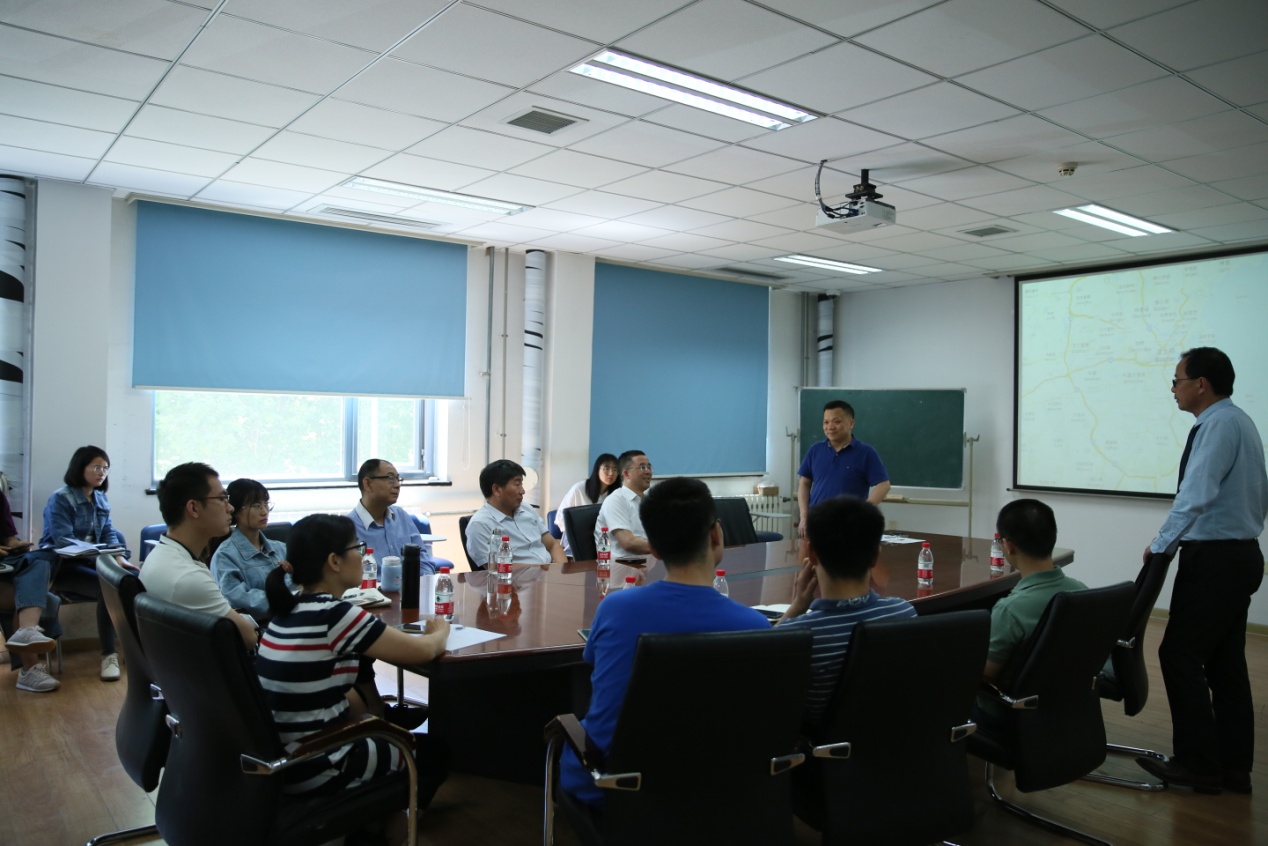On May 25th 2019, Prof. Wei Zhang, Director of the Center for Green Chemistry at the
University of Massachusetts Boston paid visit to the SKLEOC by the invitation
of Prof. Liangnian He. Prof. Zhang delivered a talk entitled “Green Synthesis
and Organocatalysis for Heterocyclic Compounds” at the 202 room of Shixian
Building.
Prof. Zhang opened his
speech by first introducing the 12 principles of green chemistry. He then
developed the talk by discussing one-pot reactions, microwave reactions,
multicomponent reactions, fluorous chemistry. These reactions are applied in
the synthesis of stereochemically complex molecules with potential biological
activities. Prof. Zhang also demonstrated the screening of the drug targets of
multiple compounds. The targets involve HIV reactivation, RORγt and MDM2. Prof
Zhang’s inspiring speech then ended with an enthusiastic discussion section.


Prof. Wei Zhang obtained
his bachelor’s degree in 1982 from Nanjing University. He then moved abroad to
obtain his Ph.D. degree in 1993 from the University of Pittsburgh, he then
stayed till 1995 as a postdoc and research assistant at the. He joined DuPont
in December of 1995. From 2001-2008 he was director of chemistry at FTI. By
February of 2008 He took position at the University of Massachusetts Boston as
associate professor, and was promoted to full professor in 2013. He is
currently the Director of the Center for Green Chemistry at the institute. He
has received the International Fluorous Technologies Award (2015), GlaxoSmithKline
HIV Drug Discovery and Development Research Award (2003), DuPont Agricultural
Products, Global Technology Accomplishment Award (1998). In 2013 he was
selected into the 9th list of the National Thousand Talent Program
of China. Prof. Wei Zhang is an internationally reckoned expert in fluorous
chemistry, radical chemistry, combinatorial chemistry and green chemistry. He
has currently authored over 200 research papers and published a book named “Green
Techniques for Organic and Medicinal Chemistry” in 2012 (2nd edition
was published in 2018). He has been invited to over 19 nations for over 200
lectures. He is on the editorial board of 7 journals and a member of 3
international green chemistry committees. He was on the review panel of the
2016 and 2017 US Presidential Green Chemistry Challenge Awards. In 2015, he was
awarded International Fluorous Technology Award in Italy. He is currently
collaborating with Harvard University and the Berlin University School of
Medicine on developing anti-cancer and HIV drugs.